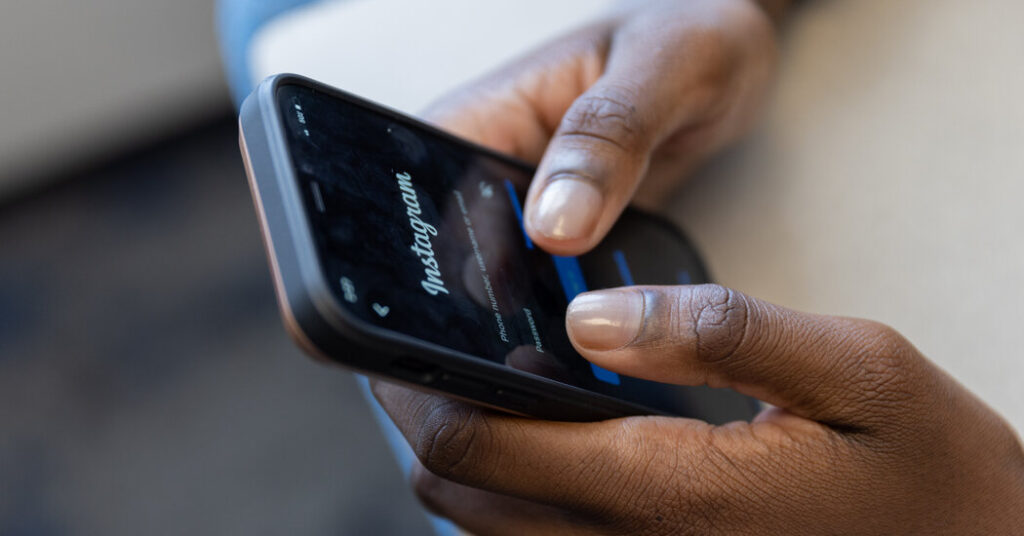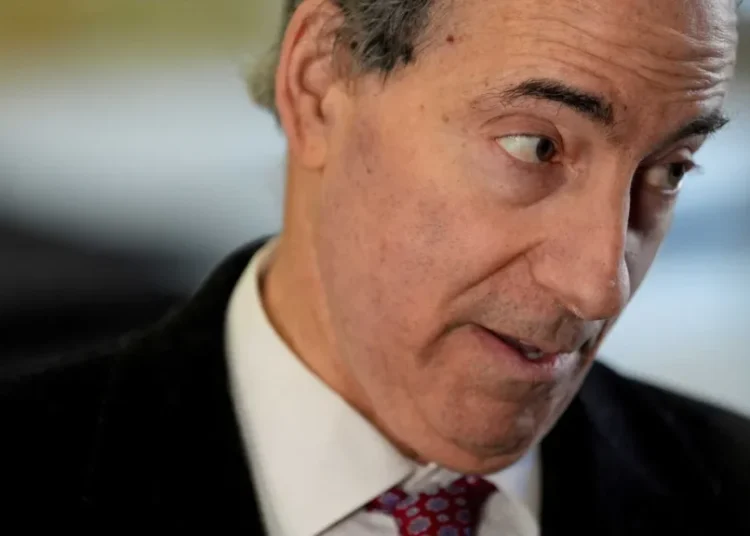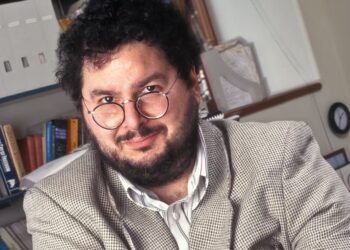Dialing down the use of social media for a week reduced symptoms of anxiety, depression and insomnia in young adults, according to a study published on Monday in the journal JAMA Network Open.
Researchers followed 295 volunteers, ages 18 to 24, who opted to take a break from social media. Instructed to stay off social media as much as possible, the group on average reduced it to a half-hour per day from just under two hours. Before and after, the participants answered surveys measuring depression, anxiety, insomnia, loneliness and a number of problematic social media behaviors.
Overall, they reported positive changes: On average, symptoms of anxiety dropped by 16.1 percent; symptoms of depression by 24.8 percent; and symptoms of insomnia by 14.5 percent. The improvement was most pronounced in subjects with more severe depression. At the same time, there was no change in reported loneliness — perhaps, the authors wrote, because the platforms play a constructive social role.
Dr. John Torous, an associate professor of psychiatry at Harvard Medical School and a co-author of the study, said reducing social media “certainly would not be your first-line or your only form of care,” but the study showed it could be useful as an adjunct treatment.
“If you’re struggling with a mental health condition, and you have treatment already,” he said, “it’s likely worth experimenting to see whether reducing social media helps you feel better.”
Dr. Torous urged caution in interpreting the results as treatment advice. The subjects had volunteered for the detox, and they had minimal mental health symptoms to begin with, so the magnitude of the improvement was not drastic. Also, there was, he said, “tremendous heterogeneity in the differences in how people responded,” and not everyone benefited.
“The averages are encouraging,” he said, “but they definitely don’t tell the full story, the variance was just so tremendous.”
Dr. Torous, who heads a digital mental health clinic at Beth Israel Deaconess Medical Center in Boston, said he became curious about the effects of reduced social media use because many of his college-aged patients reported benefiting from social media breaks.
When he sought out research literature on the subject, he found that it was “confusing” and “mixed.” His team decided to begin a study using “digital phenotyping,” a method that collects real-time information about subjects’ behavior from their devices.
He said young people eagerly came forward to volunteer for the study, which paid $150. “People are naturally interested, which I think is a good sign,” he said. Participants were asked to stop using Facebook and X, which they mostly did successfully, he said, and also Instagram, TikTok and Snapchat, which proved more difficult.
The mental health benefit seemed to come from avoiding problematic social media behaviors, like addictive use and negative social comparison, rather than a change in overall screen time, the authors said. Indeed, the participants, on average, spent slightly more time on their phones during the detox week.
The findings land in the midst of an intense academic debate over whether excessive screen time causes mental health problems.
One group of psychologists, including the social psychologist Jonathan Haidt, have identified the smartphone as the cause of deteriorating mental health among young people, and many communities have already taken steps to limit social media use or screen time, especially during school hours.
At the same time, many specialists have urged caution about concluding that screen time is a central factor in declining mental health, saying that studies have yielded mixed results and that what seems to matter is what young people do online, not how much time they spend there.
Several psychologists said the new study was of limited value because its design allowed for bias.
It was not a randomized controlled trial, in which subjects were assigned to a treatment group (one that reduced social media use) and a control group (one that continued their usual social media habits). Instead, the participants opted to take a break from social media — and may have anticipated improvement.
“The subjects would have known how they were expected to behave, and likely simply changed their responses accordingly,” said Christopher Ferguson, a professor of psychology at Stetson University, who was not involved in the study. Without comparison to a control group, he added, “these numbers are literally meaningless.”
In a period of “technology moral panic,” he said, studies that find an effect receive far more attention than those that do not, something that he said could “distort public perceptions.”
Candice L. Odgers, a professor of psychological science in informatics at the University of California, who was not involved in the study, said it was hardly surprising that “if we constantly tell people social media is bad for them and that taking a break is good, and then ask them to take a break and report how they feel after, this is what we see.”
But others were cautiously optimistic about the results. Mitch Prinstein, chief science officer at the American Psychological Association, who was not involved in the study, said the findings added to existing evidence that, on average, “depression, anxiety, loneliness often go down” for those who go off social media for a while.
Social media breaks are “a simple and free solution that seems to lead to quick improvement,” unlike psychotherapy, which can take weeks to have an effect, Dr. Prinstein said. “This is a solution that will empower most parents and young people themselves,” he said. “Use far less social media, and there is a reasonable chance that young people will start to feel a lot better.”
Still, prior studies seeking to quantify the effects of “digital detoxes” have yielded mixed results. Dr. Ferguson last year published a meta-analysis of 27 experiments linking social media breaks to mental health, concluding that the average effect was “statistically no different than zero.” A review of 10 studies published in March in Scientific Reports also found no effects.
Another meta-analysis examining 32 such experiments, published this year in the journal SSM-Mental Health, found that social media restriction “yields significant but small positive effects on subjective well-being.”
Dr. Torous attributed the variation to the low quality of the existing research studies. He said he hoped further research would allow clinicians to tailor social media breaks to individuals who will benefit from them. He was not enthusiastic about banning social media use altogether, saying that it “could cause unintended consequences.”
“It’s certainly possible to ban it, but that’s a very blunt, crude approach, at least for mental health,” he said.
Academics who have called for strict limits on social media use greeted the new study as evidence that swift action is necessary. Jean Twenge, a professor of psychology at San Diego State University, who was not involved in the new study, described it as “the latest to show that cutting back on social media use can have mental health benefits.”
Because improvements were most notable in people who were already depressed, she said, the finding “suggests that cutting back on social media for a week or two may be an effective treatment for people struggling with depression.”
Dr. Twenge, the author of “10 Rules for Raising Kids in a High-Tech World,” said the study helped discount the longstanding argument that people experiencing mental health struggles simply use social media more.
She noted, however, that more research was necessary to shed light on whether the effects were long-lasting. “The key would be to see how long people can keep up light use of social media,” she said. “If they slide back into old habits, the detox won’t have long-lasting effects. “
Ellen Barry is a reporter covering mental health for The Times.
The post Study Finds Mental Health Benefit to One-Week Social Media Break appeared first on New York Times.




